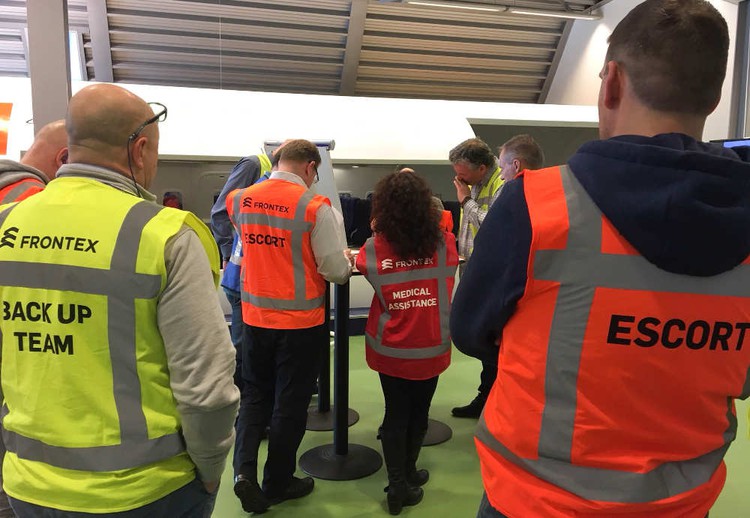Frontex, the European Border and Coast Guard Agency, continues to expand
its capacity to support EU Member States in returns after launching the
European Centre for Returns earlier this year.
In the first
half of 2018, Frontex has coordinated and co-financed 165 return
operations by charter flights, returning nearly 6400 non-EU nationals to
non-EU countries.
News
Frontex reaches milestone in return operations
2018-07-09

The Frontex European Centre for Returns provides operational and technical support to EU Member States and Schengen associated countries in carrying out return operations. It also provides assistance with pre-return activities, such as acquisition of the necessary travel documents.
While Frontex supports return operations, the decision about who should be returned is always taken by the judicial or administrative authorities of the individual Member States.
“With the creation of the European Centre for Returns, Frontex has become an essential actor in migration enforcement on the European level. We are providing an increasing number of solutions to Member States, including return operations by commercial flights,” said Frontex Executive Director Fabrice Leggeri.
Although most return operations coordinated by Frontex are done on planes chartered by Member States, the agency has also been conducting a pilot project to organise returns by scheduled commercial flights. Earlier this month Frontex completed its 300th such operation, which allows national authorities to return non-EU nationals without the need to charter an entire aircraft.
So far, 11 EU Member States have benefitted from the pilot project, which has been extended to 30 June 2019.
Frontex is also about to begin to charter planes by itself for return operations, giving more flexibility to the agency and Member States.
Earlier this year Frontex, completed the 1000th return operation supported by the agency and 100th readmission operation from Greek islands to Turkey.
Frontex also provides a pool of experts who support the return of migrants across the EU. These include monitors for return operations who participate in more than half of all joint return operations and almost all collecting return operations (with participation of third country escort officers). The role of monitors is to observe the operation and make sure it is conducted in line with applicable provisions on human rights, as well as report on its implementation from an independent perspective. As the number of returns continues to grow, Frontex is working on expanding the pool.